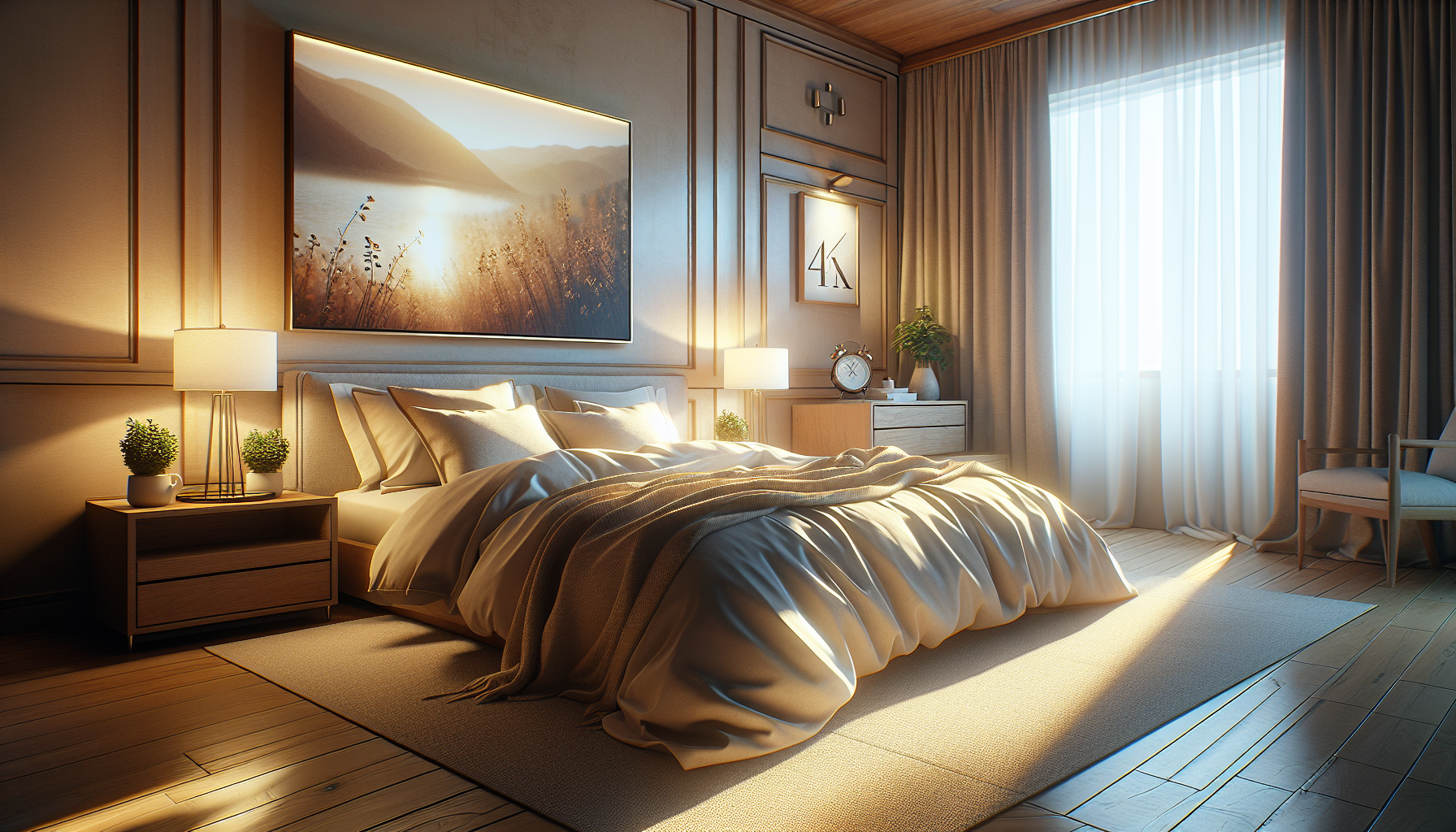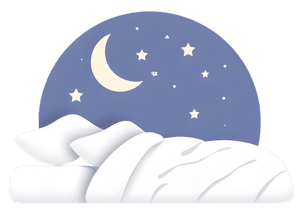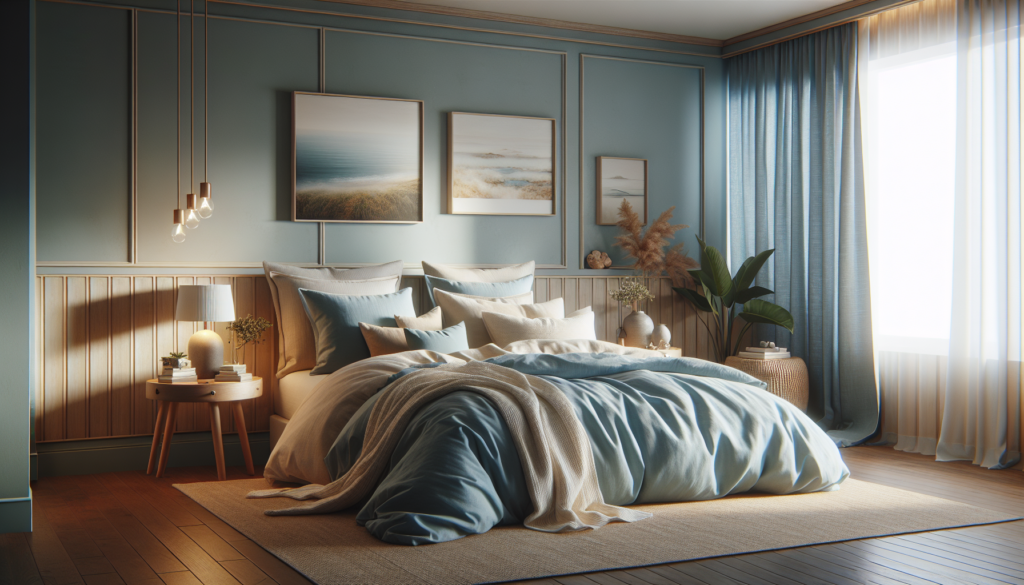Quality nighttime rejuvenation is pivotal for maintaining overall wellness and vitality. Recent studies reveal intriguing factors influencing sleep patterns, which can empower individuals to enhance their nightly rest.
Prioritizing sleep hygiene through simple changes can yield remarkable improvements in how effectively we rejuvenate each night.
Research indicates the significance of our sleep environment in establishing conducive conditions for restorative sleep.
Integrating relaxation techniques into evening rituals cultivates a serene mindset, paving the way for deeper slumber. Gradually, these findings illuminate how lifestyle choices and modern sleep technologies can align with our natural circadian rhythm, fostering better overall rest.
Click here to learn more about: bettersleephq.com
Understanding Sleep Cycles For Better Quality
Recent studies highlight how structured sleep patterns contribute to improved health outcomes. Sleep cycles consist of various stages, including REM and non-REM sleep, each playing a role in recovery and overall vitality.
Disruptions in these stages, such as those caused by sleep apnea, can result in sleep deprivation and fatigue.
To combat these disturbances, cognitive behavioral therapy is recommended as an effective treatment.
Implementing strategies like blue light reduction and mindful breathing can enhance sleep quality. Creating a dark, quiet room further supports optimal sleep cycles.
Recognizing these elements is necessary for achieving a rejuvenating nightly rest.

How Sleep Hygiene Affects Your Restorative Sleep
Achieving quality rest is influenced significantly by healthy habits surrounding sleep. Recent sleep studies have unveiled that effective sleep tracking correlates with better overall well-being.
Creating a consistent bedtime routine is beneficial for reducing sleep latency, which in turn fosters deeper sleep.
A well-organized sleep environment, incorporating aspects like light and noise control, can greatly enhance your rest.
Engaging in relaxing activities before bed triggers the relaxation response, allowing you to fall asleep more effortlessly. Avoiding stimulants such as caffeine proves crucial to maintaining sound sleep hygiene.
Implementing simple lifestyle changes can yield substantial improvements in your sleep patterns and overall health.
Sleep Hygiene
- Consistent sleep routines can reduce sleep latency by up to 30 minutes.
- Studies show that a dark and quiet sleep environment can improve sleep quality by 20%.
- Engaging in relaxing pre-sleep activities can increase the likelihood of falling asleep within 15 minutes.
- Avoiding caffeine at least 6 hours before bedtime can significantly enhance sleep quality.
The Role Of Circadian Rhythm In Sleep Improvement
Maintaining a consistent sleep schedule is integral to enhancing rest quality and overall health. Recent studies indicate that individuals who align their sleep patterns benefit from improved daytime alertness and reduced sleep disruption.
For instance, exposure to natural light during the day elevates serotonin levels, which in turn supports nighttime sleep quality.
Evidence shows that erratic sleep habits can contribute to chronic fatigue and reduced cognitive function.
To achieve significant improvement, strategies such as ensuring consistent bedtime routines and maximizing daylight exposure are effective. Environmental factors, like minimizing late-night screen time, are also influential in optimizing sleep health and reaching wellness goals.
Effective Relaxation Techniques To Enhance Sleep
Techniques for calming both mind and body play a significant role in enhancing overall wellness practices. Research shows that mindful practices can positively influence sleep architecture, leading to more restorative slumber.
Incorporating breathing exercises often yields remarkable benefits in stress management, as they promote increased heart rate variability.
Establishing an optimal sleep environment contributes to holistic health by minimizing distractions and encouraging relaxation.
Integrating soothing sounds, such as white noise or calming music, enhances frequency of restful moments, creating a serene atmosphere. Establishing a nightly routine that embraces these wellness practices can improve efficiency in falling asleep, ensuring you wake up revitalized and prepared for the day ahead.
Wellness Practices
- Mindful practices can enhance sleep quality and architecture, leading to restorative sleep.
- Breathing exercises can significantly improve stress management by increasing heart rate variability.
- Creating an optimal sleep environment reduces distractions and promotes relaxation.
- Incorporating soothing sounds can increase restful moments and create a calming atmosphere.
Exploring Sleep Technologies For Optimal Rest
Technological innovations play a pivotal role in enhancing nightly rejuvenation. Recent advancements reveal how tailored enhancements in sleep apps track individual sleep patterns, leading to actionable insights.
Research shows that devices focused on optimization can effectively monitor circadian rhythms for improved sleep quality.
Specialist tools contribute to relaxation routines, promoting deeper rest and recovery.
Incorporating essential oils creates a tranquil environment, enriching the overall experience. Structured physical activity serves to complement these strategies, reinforcing sleep health.
Together, this blend of devices and methodologies ensures a comprehensive approach to achieving optimal rest.


